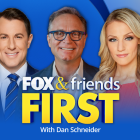The liberal media met Facebook’s announcement of its first 20 members of its new Oversight Board with praise and applause. But for some, the lefty choices made were not liberal enough.
“Some see the board as a valuable check on Facebook’s power to control the speech and behavior of billions of users,” wrote Columbia Journalism Review’s (CJR) Chief Digital Writer Matthew Ingram. Tech journal Protocol referred to the board as “Facebook’s audacious experiment.” Recode podcast host Kara Swisher called the members “diverse and politically balanced.” CNBC described the board members as a “globally diverse group.”
 But even with the hype, it seems as if Facebook’s choices were not far enough left to please some of the critics in the media. CJR added the caveat, “But others question whether the board will truly be independent or effective against such a massive corporation ... [that] unilaterally selected all four co-chairs, who then chose the 16 other members and will choose the next 20 ... [and] also funds the board, albeit via an arm's-length trust."
But even with the hype, it seems as if Facebook’s choices were not far enough left to please some of the critics in the media. CJR added the caveat, “But others question whether the board will truly be independent or effective against such a massive corporation ... [that] unilaterally selected all four co-chairs, who then chose the 16 other members and will choose the next 20 ... [and] also funds the board, albeit via an arm's-length trust."
“Absent, however, was any prominent expert in studying disinformation,” said NBC News Tech Reporter David Ingram. “Facebook has struggled to contain state-based manipulation efforts as well as hoaxes on subjects like false cures and gun violence.” In a New York Times op-ed, Swisher also wondered why “there were no board members like the parents of the Sandy Hook victims, who were terrorized by the conspiracy theorist Alex Jones on the platform until he was finally tossed off.”
Tech magazine Wired had a rationalization for why there were so many left-leaning activists on the board: “Since human rights activists generally shade liberal, getting representation on the left was less of a problem.” Vox’s tech outlet The Verge applauded the board’s “solid diversity of gender, race, and geography.”
Protocol’s senior reporter Issie Lapowsky wrote that the oversight board “opens up the possibility that the trust might some day spin off additional oversight boards for say, YouTube, Twitter or any other platform that makes content moderation decisions.”









